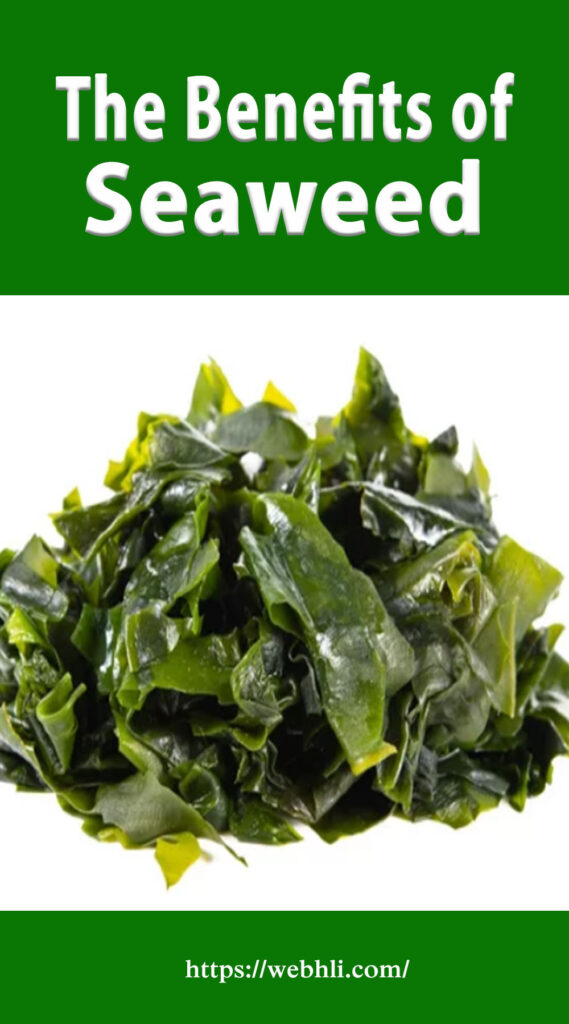
Today, many of us have eaten seaweed in one form or another. However, you might be surprised to find out how many vitamins it offers and how vital they are for our general health. Seaweed also has an abundance of minerals, but I'll cover that in another article. For now, lets see what vitamins seaweed offers us and the impact it has on our overall health.
Check out these related articles, too:
Kidney Diet Secrets That Can Reverse Chronic Kidney Failure
What Is A Healthy Kidney Diet Plan
Diet Tips For People With Diabetes and Kidney Disease
Are Renal Insufficiency And Kidney Failure The Same Thing
5 Natural Supplements For Chronic Kidney Disease
Bitter Melon Recipe For Diabetes
Control Your Diabetes Better With These Helpful Tips
Gastroparesis - A Challenge to Control
Blood Sugar Control and Diet - A Plan to Reverse Diabetes
Vitamin A
Cell Growth, Repair, and Immunity
Helps your body fight illness from viruses and bacteria. It strengthens areas of your body which are vulnerable to them such as the mucous membranes near the eyes and nose which is how viruses and bacteria can enter your body which can lead to illness.
Vision and Eye Health
Helps fight against glaucoma, macular degeneration, and cataracts, along with other illnesses of the eyes which you may become vulnerable to as you get older.
Cancer
Is considered to be a strong antioxidant and is thought to prevent development of certain varieties of cancer and pulmonary diseases.
Bones
Since Vitamin A plays a significant part in the growth of new cell tissue, it also helps ensure bone health by replacing damaged tissue. It also helps the formation of dentin on your teeth.
Prevention of Urinary Stones
Vitamin A creates a mineral called calcium phosphate that prevents solid particles from forming within your body. These particles can form stones and can cause vomiting and pain.
Helps to Maintain Healthy Skin
Vitamin A is an antioxidant. Free radicals damage the skin, which is why antioxidants are important in maintaining healthy skin. It will protect it from wrinkling, pimples, dryness, and psoriasis.
Vitamin B1
Is also commonly known as Thiamine or Thiamin. B1 is important for maintaining a healthy nervous system. In addition it will help to convert the food you eat everyday into energy your body uses to function.
Vitamin B2
Also known as Riboflavin. Vitamin B2 also helps convert food into energy. As a matter of fact, every B vitamin aids in the conversion of food into energy. However, B2 is also responsible for breaking down fats and proteins. In addition it helps in the production of hormones and helps red blood cells to stay healthy.
Vitamin B3
Is typically known as Niacin. It also helps in converting food into energy like all the B vitamins. It's also responsible for helping your nervous system to continue functioning properly, assists in maintaining a healthy digestive system and assists in blood circulation.
Vitamin B6
Helps prevent heart disease, aids in the production of antibodies to fight infection, viruses and bacteria. Like B3, it assists in the maintenance of your nervous system. It also assists in keeping red blood cells healthy. Similar to many of the B vitamins, it also converts food to energy.
Vitamin B-12
Is also known as Cobalamin. B-12 is known to assist in preventing heart disease, strengthen the immune system, keep red blood cells healthy and like all the B vitamins we've mentioned, it assists in converting food to energy.
Vitamin C
Is another vitamin that has a host of positive affects on your health. There's also evidence that it helps to raise good cholesterol generally known as HDL. HDL helps to eliminate fatty deposits from arteries, which reduces the risk of developing cardiovascular disease. It's also an antioxidant like Vitamin A. It also promotes strong teeth and bones, healthy skin and gums, helps wounds to heal and strengthens blood vessels.
Vitamin D
Aids in bone growth, strength and also helps to strengthen teeth. It also boosts the activity of the natural killer cells in your body. These cells are responsible for targeting other cells that are infected by viruses. Vitamin D also plays a role in the rejection of tumors. It also helps lower cholesterol. Low levels of Vitamin D can lead to increased blood pressure and increased risk of developing cardiovascular disease.
Vitamin E
Is known as an antioxidant like Vitamins A and C. It protects cells from the negative affects of free radicals. It can help to strengthen the immune system. It also helps create red blood cells. In addition it widens blood vessels, which prevent blood clots.
We take vitamins for granted, but they're vital to the proper functioning of our bodies. As you can see, seaweed has an abundance of them. Maybe it's time you thought about including it in your diet more often?
WHEN DIABETES CAUSE STOMACH PROBLEMS
Good Energy Food for Diabetics
10 Simple Food Concepts Every Person Living With Diabetes Should Know
Making Cheesecake For Diabetics
Enjoy the Taste and Benefits of Diabetic Foods
Will The Mulberry Leaf Help Your Diabetes?
5 DIABETIC FRIENDLY SALADS Some Tasty
DIABETIC LEMON COCONUT COOKIES Some Tasty
50 Healthy Diabetic Recipes That Are The Best
Matt M. Stewart is involved in all things healthy. From exercising out in the great outdoors while kayaking, cycling, and hiking to using healthy ingredients like seaweed in new recipes. He is webmaster of a blog called ESeaweed Nutrition [http://www.eseaweednutrition.com/category/blog] which is devoted to all things seaweed.
If you're interested in learning more about seaweed, it's health benefits, and recipes that use seaweed please visit [http://www.eseaweednutrition.com].
Article Source: http://EzineArticles.com/7112102

 Protected by Patchstack
Protected by Patchstack